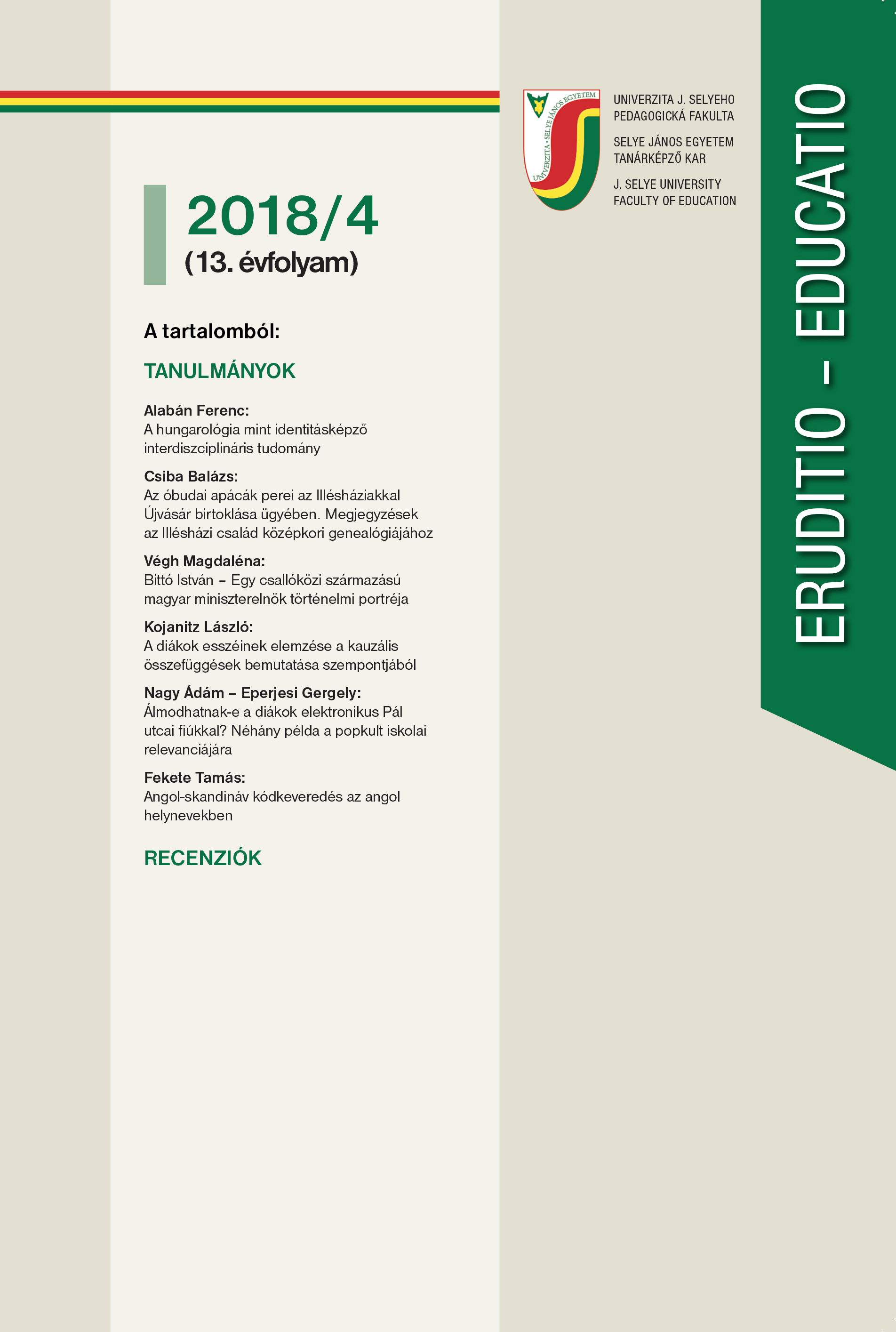Angol-skandináv kódkeveredés az angol helynevekben
Anglo-Scandinavian Code-Mixing in English Place-Names
Author(s): Tamás FeketeSubject(s): Language and Literature Studies, Theoretical Linguistics, Lexis
Published by: Pedagogická fakulta Univerzity J. Selyeho
Keywords: toponymy; code-switching; congruent lexicalization; Danelaw; language contact
Summary/Abstract: With this paper I wish to investigate the nature of code-mixing found in English place names chiefly, though not exclusively, from the Danelaw area. The paper analyzes this code-mixing in the framework of contact linguistics in the light of the contact situation between Old English and Old Norse, as described by Townend (2002) and Lutz (2013), which existed from the 8th century onwards, bearing in mind, however, that the Scandinavian place names may not necessarily be the direct indicators of the nature and extent of the Scandinavian settlement itself. Historical code-switching usually and generally focuses on describing intersentential and intrasentential code-switching, and this paper aims at broadening the overall scope of the investigation through the inclusion of onomastics. The analysis will be chiefly based on the corpus of 1915 relevant place-names, with the data drawn from the Oxford Dictionary of English Place-Names (Mills 1998), and Fellows-Jensen’s regional studies on Scandinavian place-names in England (Fellows- Jensen 1972, 1978, 1985). The primary focus of the investigation will be those place names which contain both Scandinavian and English elements, used to contain at least one Scandinavian or English element which was replaced by an element from the other language, contain at least one element which underwent a transformation to accommodate to the phonological system of the other language and contain elements which could belong to either of the languages but cannot be decided with absolute certainty. In this paper I also argue that names (specifically the above mentioned place-names) can conform to Muysken’s (2000) category of congruent lexicalization and that word-internal code-switching, and CS in general, is in fact a phenomenon that can occur in the case of hybrid place-names.
Journal: Eruditio - Educatio
- Issue Year: 13/2018
- Issue No: 4
- Page Range: 87-106
- Page Count: 19
- Language: Hungarian

